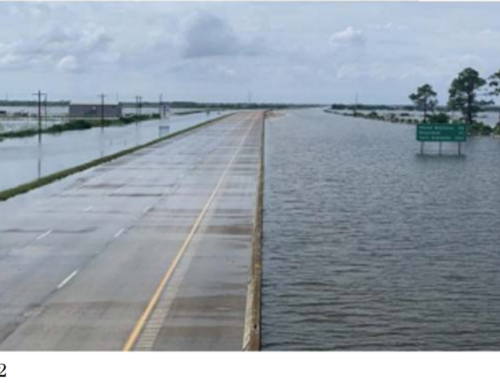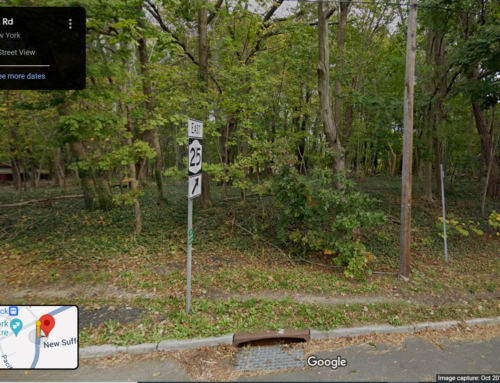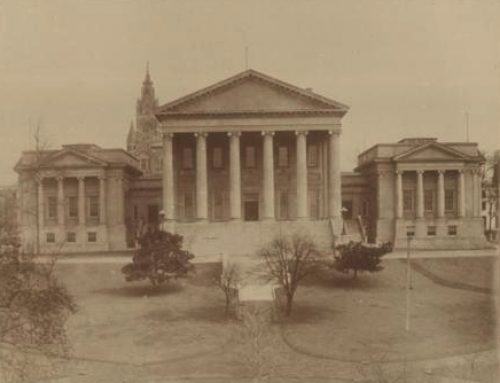[This blog post is based on an interview of Mayor Stephen Adler from Episode 60 of the Infrastructure Junkies podcast. For a full replay of the recording, listen here.
Those familiar with me in the eminent domain/ right-of-way industry know that my cynicism towards many landowner attorneys runs deep and wide. We who represent condemning authorities have a heavy responsibility; we are the conservators of the public trust. Eminent domain is not something to be taken lightly, nor is it a power that should ever be abused. It is our job as condemning agency attorneys to “hit the bull’s eye”; it is our responsibility to ensure that a displaced landowner receives just compensation for the acquisition. Not a penny more, not a penny less.
Landowner attorneys, however, will frequently employ tactics to maximize financial windfall in eminent domain cases. Those tactics may include leveraging media contacts, politicians, or creative appraisers. Unlike us condemning authority attorneys (whose job is not to get the best deal or pay the least compensation possible) their job is to fight for every penny they can get for their clients within the confines of the law. Ethically, they are doing exactly what they are supposed to do. Frequently I think that if the landowners’ bar had its way, the cost of right-of-way acquisition would make almost any infrastructure project prohibitively expensive. Nothing would ever get done. Like I said, my cynicism runs deep.
I often wondered how a successful landowner attorney would fare in public office. How would someone who was accustomed to maximizing financial windfall on behalf of landowners, regardless of the effects on a project, fare when he or she had to become the champion of such a project? What would happen when the proverbial hunter becomes the hunted?
I got the opportunity to explore this question when we sat down with Stephen Adler, two-term former Mayor of Austin, Texas. Mayor Adler had been a very successful landowner attorney in Austin, at a firm that was (and still is) an outstanding advocate for Texas landowners affected by eminent domain. To make it even more interesting, when Adler took office, Austin was in sore need of major infrastructure improvements. During Adler’s tenure as mayor of Austin, two major infrastructure bonds were passed. Project Connect was a $7.1 billion transit plan involving new rail lines, rapid transit bus lines and much more, including $300 million in funding for anti-displacement initiatives. There was also the $720 million Smart Corridor Mobility Bond that passed in 2016 that was more than four times the amount of any transportation bond previously approved in the City of Austin. As you can see, infrastructure was a top priority during Alder’s tenure.
So, what was it like for a landowner lawyer to be at the helm during the heyday of infrastructure development in that city? Was Mayor Adler’s approach to those initiatives impacted by his experience as a landowner attorney?
“I think so because the projects didn’t scare me,” said Adler. “And the scale that needed to happen in order to really get things done was something that I was used to.” In other words, Adler had seen big infrastructure projects, was familiar with the heavy price tags of such development and was fully prepared for the sticker shock. He just had to convince some of his fellow city leaders of the same.
“In 2016, when I proposed that $720 billion bond to improve [highway] 360… no one on my council was supporting a bond that was that size. The consensus on the council when I initially proposed it, probably would have been like $100 million. So, I think that part of it was getting used to the scale, not being scared of projects, recognizing that they’re long term, [and] knowing that they needed to be kicked off. And again, acquiring property in order to get things done as just a civic tool.”
He recalls crossing paths with someone from the local city attorneys’ office after being elected.
“There was a young woman on the elevator [at City Hall] and as we were headed up, I could tell that she wanted to say something to me and wasn’t quite able to get out whatever it was that she wanted to say. So she was an attorney or staff up on that [City Hall] floor. I said ‘hi’ to her and introduced myself because I was the new kid on the block. She looked at me and said, ‘you’re on our side now, right?’”
Fortunately for the good citizens of Austin, he was.
After years of fighting for the disaffected, Mayor Adler spent his time in office as a champion for progress and much needed infrastructure development. His experience as a landowner attorney turned out to be a tremendous asset to the City of Austin and its citizens as these historic initiatives were developed and passed under his leadership.








Leave A Comment